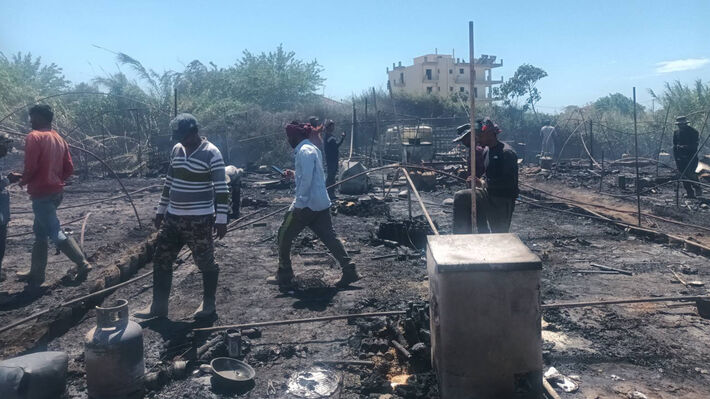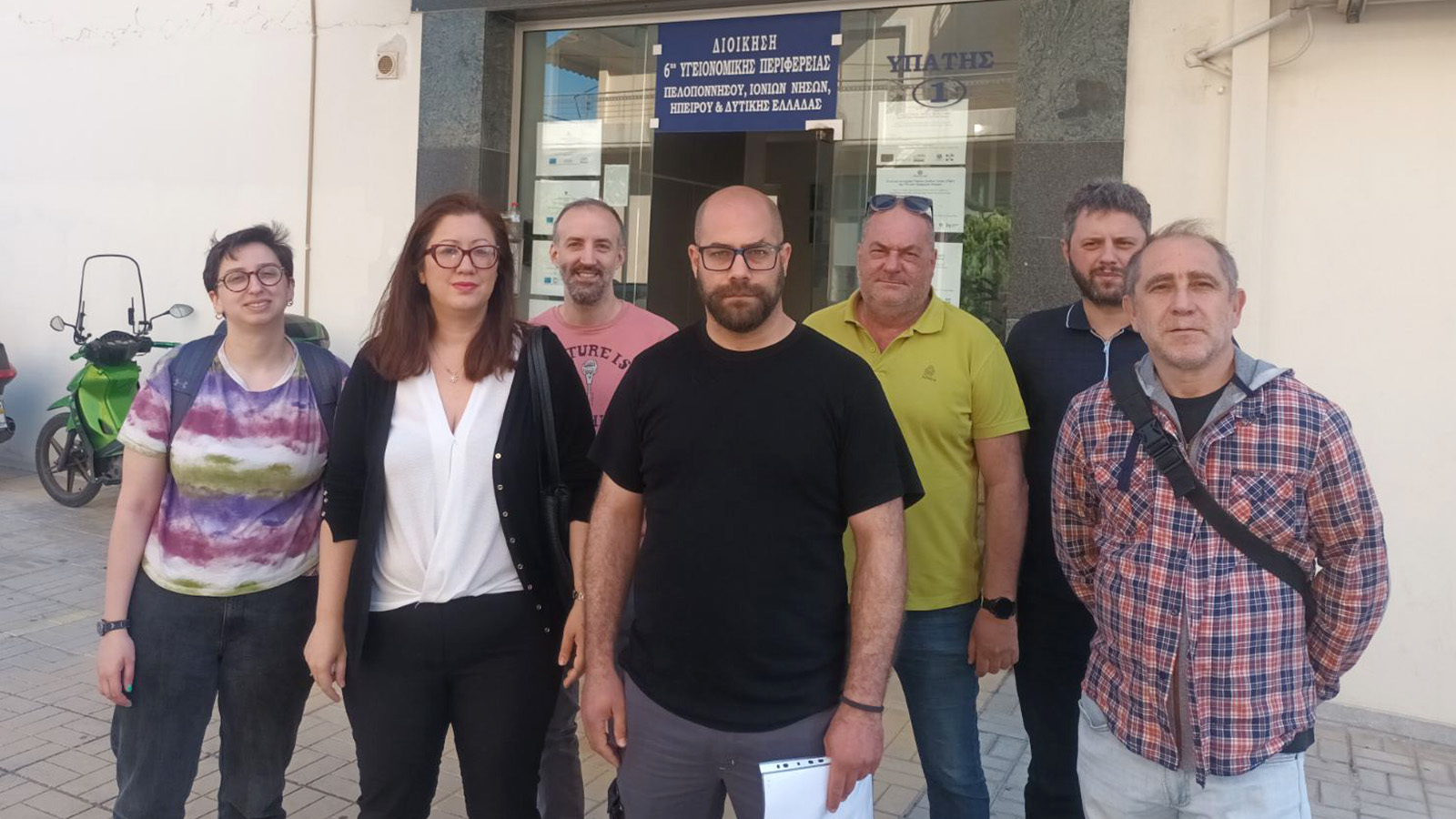Shameful Report by the Fire Department – New “Tools” for Unions in the Battle for Solidarity and Organizing the Struggle
The official report from the Fire Department regarding the devastating fire that occurred on May 13 in the migrant workers’ camp in Nea Manolada fails to provide any substantial conclusions about the causes of the fire or, more importantly, the protection of human life. This indicates that human life is treated as expendable in such “facilities” scattered across Western Achaia and Northern Ilia. The report, which was shared with the Patras Labor Center upon their request, offers no meaningful insight into the living conditions of these “marginalized” individuals, who are living in what can only be described as a ticking time bomb.
The Fire Department’s report from Lechaina briefly describes the damage caused by the fire, which was significant and immeasurable for the hundreds of displaced migrant workers who lost their few belongings, including essential documents. However, it makes no substantial reference to the living conditions of these individuals, which are inherently hazardous.
Issues such as “makeshift greenhouse-type shelters” and various prefabricated “buildings” constructed side by side with temporary materials are acknowledged by the Fire Department. Yet, there is no mention of the fire hazards posed by these structures. Furthermore, the report fails to address the need for preventive measures to avoid similar incidents in the future, especially when thousands of workers in the broader area are crammed into similar makeshift shelters, often within various agricultural fields.
Instead, the Fire Department’s “certification” merely lists what was destroyed, including gas cylinders, which themselves pose even greater risks and are present in almost all migrant workers’ living spaces due to the lack of electrical kitchens and other household facilities.
Basic Safety Standards Not Met
According to Savvas Thodoris, a retired Fire Department General and Deputy Chief, all mass gathering and accommodation areas should comply with Presidential Decree 71/88, Article 19, and its subsequent amendments concerning passive and active fire safety measures. He emphasized:
“First and foremost is the safety of life. We’re talking about human beings. The relevant fire safety permits for specific accommodation facilities are issued by the urban planning departments. However, here, even from the description, we’re not even talking about facilities. The responsibility for these falls on the property owners, in this case, the employers who are obligated to take the necessary measures.”
He explained that “passive” measures include all aspects of building construction that ensure safe and timely evacuation in case of fire (such as escape routes, special signage, etc.) and help prevent the spread of fire. “Active” measures involve all actions required for early detection of an incident, its identification, and immediate intervention before it escalates. These measures, which should be re-evaluated every five years, include the presence of fire extinguishers, water supply, emergency exits, etc., which are essentially nonexistent in the living spaces of migrant workers, as was the case in the burned camp.
Thodoris further noted that, at the very least, there should be fire patrols and cleaning of areas surrounding migrant workers’ living spaces from trash and other flammable materials, with responsibility lying with the municipalities and other competent services.
The events and the conditions in the migrant workers’ living spaces clearly demonstrate that even the existing civil legislation is not being adhered to.
Solidarity and New “Tools” in Organizing the Struggle
Meanwhile, solidarity is growing, and efforts to organize the struggle of migrant workers are intensifying.
Starting Tuesday, June 10, the website of the Western Achaia and Northern Ilia Food and Beverage Workers’ Union will be operational in three languages (Greek, English, Bengali), with the ability to translate its content into the user’s preferred language. The site will facilitate communication with volunteer doctor and lawyer teams, as well as direct contact via email with union representatives.
Simultaneously, the union’s offices in Nea Manolada continue to operate, and delegations of unionists are visiting migrant workers’ living areas. The union’s initiatives have strengthened solidarity through visits from unionists and workers’ unions, distribution of food, drinking water, and clothing collected by the union.



